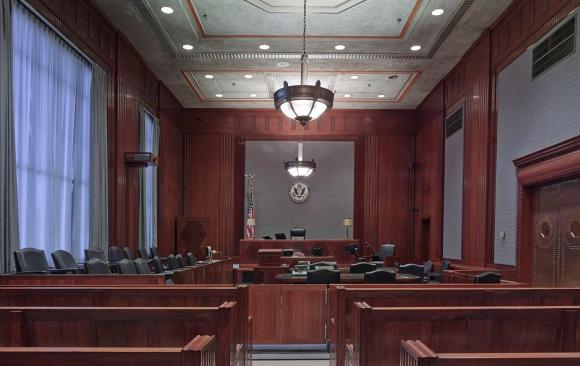


Nearly five years ago, Jerome Murdough, an African-American Marine Corps veteran, died on Rikers Island due to a combination of injustice, inhumanity, and medical neglect. Afflicted by homelessness and mental illness, Murdough tragically passed away when temperatures in his cell reached 100 degrees – heat that was contraindicated with his medicine – and he baked to death. The reason for this death sentence: He was cold one night and sought shelter in a public housing stairwell, where he was arrested for trespassing and jailed on $2,500 bail.
All across the country, in response to tragic injustices like those faced by Jerome Murdough, the movement to end mass incarceration is making real gains. After decades of oppressive policies, many policymakers are pursuing real solutions to shrink jail and prison populations and challenge the racial disparities that define the criminal legal system.
Reformers may have the momentum, but that doesn’t mean that the pro-mass incarceration lobby is finished. The lobby includes regressive prosecutors and sheriffs, as well as bail bonds companies that profit from the status quo. In New York, it looks a lot like they’re just getting started again, and their tactics are likely a preview of what we’ll see across the country as people demand more reforms.
Last April, when Governor Cuomo signed historic criminal legal system reforms into law, New York took a huge step towards addressing the systemic inequities of our current bail and discovery laws. The new laws, which take effect today -- January 1, 2020 -- will dramatically reduce the number of people held in pretrial detention and prevent prosecutors from unjustly withholding evidence.
No longer will our bail laws allow tens of thousands of people in poverty to be jailed every year while facing only alleged misdemeanors and non-violent felonies while the wealthy pay bail and remain free until and unless they receive a sentence upon conviction. No longer will our discovery law blindfold people to the evidence, a practice that has fueled wrongful convictions, ruined lives, and cost millions in legal settlements.
These reforms respond to the urgency of a system that often allows a person’s race and income to determine their freedom -- a system that tramples on the idea that a person is innocent unless they are proven guilty.
And now, as we begin implementation, those with a vested interest in keeping this system unfair for low-income New Yorkers and people of color are trying to scare lawmakers into undoing the fragile progress. They are mobilizing across the state with dire warnings of what might go wrong – as if people are not hurt by the existing system every day.
As public defenders, we see firsthand the impact that jailing has on the criminal legal system, as we routinely represent clients who languish in jail for months, if not years, simply because they are unable to afford bail money. They miss milestones like graduations, weddings, and funerals while they are detained away from their families and friends, losing jobs and housing, and even losing their children to foster care -- all without ever having been convicted of anything. Not to mention the grave risk to their lives: 372 people have died in New York City jails since 2001.
Many of the people we serve feel immense pressure to plead guilty simply because it would get them out of jail quicker than waiting for a trial would. Research shows that being held in pretrial detention increases both the likelihood of conviction and the length of prison sentences, though many are released from jail after accepting a plea deal.
Prosecutors understand the power and leverage that a broken pretrial system offers them, wielding that unfair advantage to coerce plea deals: 95% of all cases end in plea deals or dismissals, not trials. Adding to the unjust and coercive nature of this system, the vast majority of all of these pleas are negotiated with one side left in the dark because of the discovery law.
Of course, prosecutors want to roll back these reforms. The old system helped artificially increase their conviction rates, or to appear “progressive” by authorizing alternatives to detention that include constant and invasive surveillance when a person should be released outright pending trial. A deck stacked in their favor helps ensure they exercise outsized control over outcomes, regardless of the facts of a case.
When prosecutors claim that these pretrial reforms will result in ‘criminals’ running free and skipping their court dates – dehumanizing and inaccurate language, to be sure – it is important to remember that charitable bail funds already prove them wrong. For example, Bronx Freedom Fund found that 96% of the more than 2,500 people for whom they paid bail — each and every one presumed innocent — attended all of their court dates; 55% of those cases were entirely dismissed.
Moving past the fear-mongering, it’s important not to lose sight of the victims of the old system. It is people like Jerome Murdough and Kalief Browder and India Cummings and Robert Ingalsbe and Selmin Feratovic and Layleen Polanco who have lost their lives because of brutal jail conditions and the violence and despair they breed.
New York must show the nation that we can make real strides toward justice in our criminal legal system. Too many lives have already been ruined not to implement these reforms as required under the law.